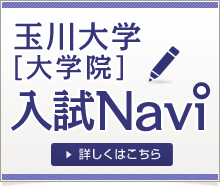ビーバーフォード先生Tamagawa Graduate School of Education's Online IB Educator Classes - Reflections Vol.2
2023.06.27
玉川大学大学院教育学研究科のIBEC(IB Educator Certificate)認定証取得英語オンラインプログラム - 振り返り
The IB itself offers a range of professional development options for teachers. The most common format for professional development is three-day face-to-face workshops. There are also online versions of the workshops, which run over six weeks (IB Workshops and Resources: 2022-2023 Catalogue, 2022). While these workshops are good at dealing with the nuts and bolts of IB practice, they do not tackle the theoretical aspects of IB teaching and learning. These workshops deal mainly with the how-to of teaching within an IB program, but participants need more time to consider why these pedagogical practices are in place. The workshops work well for teachers who have studied instructional design during their teacher training. However, in many countries, teacher training prepares teachers to deliver a specific curriculum and may or may not place emphasis on instructional design. IB programs require teachers to be instructional designers. The IBEC courses at Tamagawa, whether face-to-face or online, focus on the critical analysis of IB practice. We ask students to look beyond IB's documentation and delve into the theoretical underpinnings of the practices the IB recommends. The five courses, three common and two programme specific, cover a range of topics from international education, curriculum design, assessment as learning and pedagogical practices which promote the development of 21st-century learning skills, student agency and lifelong learning.
IBは、教師のためにさまざまな専門能力開発のオプションを提供しています。専門能力開発の最も一般的な形式は、3日間の対面式ワークショップです。また、6週間にわたって行われるオンライン版のワークショップもあります(IB Workshops and Resources: 2022-2023 Catalogue, 2022)。これらのワークショップは、IB実践の基本的な仕組みを取り扱うことには長けていますが、IB教育における指導と学習の理論的側面には触れられていません。ワークショップは、主にIBプログラム内での教え方のハウツーを扱っていますが、参加者は、なぜこのような教育的実践が行われているのかを考えるための時間をもっと必要としています。ワークショップは、教員養成課程でインストラクショナルデザイン(教育設計)を学んだ教員に有効です。しかし、多くの国では、教員研修は特定のカリキュラムを提供するために教員を養成するものであり、必ずしも教育設計に重点を置いているとは限りません。IBプログラムでは、教師がインストラクショナルデザイナー(教育設計者)であることが要求されます。玉川のIBECプログラムは、対面式、オンライン式にかかわらず、IBの実践を批判的に分析することに重点を置いています。IBが推奨する実践の理論的な裏付けを掘り下げるために、IBのガイドにとどまらず、幅広く学ぶことを履修生に求めています。3つの共通科目と2つのプログラム別科目の計5つの科目では、国際教育、カリキュラムデザイン、学習としての評価、21世紀の学習スキル、学習者の主体性、生涯学習の発達を促す教育実践など、さまざまなトピックを扱っています。
We offer classes in both Japanese and English, as day classes, night classes and online classes. Ensuring that students, no matter which version of the course they have enrolled in, receive a similar experience has been a high priority for the instructors. The team regularly meets to discuss the classes' contents and assessments. We conduct annual reviews of the classes to ensure that the different sections of the same class address the same curricular objectives. Providing a consistent experience between the different formats has been challenging for several reasons. Resourcing the courses is a challenge. Some IB documents are available in Japanese but not all. Finding supplemental readings and resources is much easier in English. Secondly, the face-to-face and online classes' format and pacing differ. The face-to-face classes run concurrently over the 15 weeks of the spring and fall semesters. The online classes run back-to-back as intensive courses during the spring and fall semesters. Thirdly, delivering courses online requires a different pedagogy.
玉川のプログラムでは、言語は日本語や英語、授業形態は昼クラスは対面で、夜クラス同期型オンラインで、オンラインクラスは主に非同期型で提供しています。どのバージョンの科目を履修しても、履修生が出来るだけ同じような体験を得られるようにすることは、講師陣にとって優先順位の高い課題となっています。チームは定期的に会議を開き、授業の内容や評価について議論しています。また、同じ科目の異なるセクションが科目の目標に向けて一貫して取り組んでいることを確認するため、毎年、科目内容の検討と見直しを実施しています。異なるバージョンで一貫した体験を提供することは、いくつかの理由から困難があります。まず、科目のリソース確保が課題です。IBのガイドの中には日本語版もありますが、すべてが翻訳されている訳ではありません。適切な教材や資料を探すのは、英語の方がはるかに簡単です。次に、対面式とオンラインでは、授業の形式やペースが異なります。対面授業は、春学期と秋学期の15週間で同時進行します。一方、オンライン授業は、春学期と秋学期に集中講義として連続して行われます。そして、第三に、オンラインで授業を行うには、異なる教育法が必要です。
Key to a successful online learning experience is the building of community which can be difficult in an online learning environment. IB learning and teaching are based on a social constructivist approach which means learners need opportunities to negotiate their understanding of the concepts covered with their peers. We have employed various educational technology to ensure students have ample opportunity for learner-to-learner and learner-to-instructor interactions. When choosing tech tools, we have tried to select tools that would be used in IB classrooms so that the students in our classes feel the time they invest in learning how to use them impacts their classroom practice. Thus far, we have delivered asynchronous content via a mix of interactive H5P learning engagements (H5P – Create and Share Rich HTML5 Content and Applications, n.d.) , interactive videos, and text-based presentations made interactive using Pear Deck (Homepage | Pear Deck, n.d.). These systems allow the instructor to provide feedback and address misconceptions as students work through the materials.
オンライン学習を成功させる鍵は、オンライン学習環境では困難であると思われるコミュニティの構築にあります。IBの指導と学習は、社会構成主義的なアプローチに基づいており、学習者は、学習した概念の理解を仲間と議論する機会が必要です。私たちは、履修者同士や履修者と教員の交流の機会を十分に確保するために、さまざまな教育技術を活用しています。技術的なツールを選ぶ際には、IBの教室で使用されるようなツールを選ぶようにし、その使い方を学ぶために投資した時間が教室での実践に活かされると履修者が感じるように工夫しました。これまで私たちは、インタラクティブなH5P学習(H5P - Create and Share Rich HTML5 Content and Applications, n.d. )、インタラクティブなビデオ、Pear Deck(ホームページ|Pear Deck, n.d. )を使ったインタラクティブなテキストベースのプレゼンテーションなどを組み合わせて非同期コンテンツを提供してきました。これらのシステムにより、教員は履修者が学びを進めて行く中でフィードバックを提供したり、履修者の誤解に対応することができます。
Group work and discussions can be challenging with a class spread out over a wide range of time zones, and much of the discussion in online courses happens asynchronously. To ensure students have an opportunity to negotiate meaning, we schedule one synchronous session a week, during which they discuss the asynchronous materials they covered in the previous week. One of the primary assessment pieces in the online courses is student-led group discussions based on the Harkness discussion model (Areaux, 2018). Students prepare questions about the materials they want to discuss with peers and record their conversations on Zoom. We grade these discussions using a rubric that centers on evaluating the quality of participation and the depth of the discussion. Despite the difficulties of finding a time to meet, generally, students have found these discussions beneficial. The recordings of these discussions are archived on Flip (Flip Is a Video Discussion and Sharing App, Free from Microsoft., n.d.) and become resources for the following year's cohort.
オンラインクラスでは、履修者がさまざまなタイムゾーンに分散している場合があり、グループワークやディスカッションの時間を設定することが困難な時があります。また、オンラインクラスでのディスカッションの多くは非同期で行われるため、履修者が意味を理解する機会を確保するため、週に1回、同期型セッションを設け、前週に扱った非同期の教材について議論するよう時間を設けています。オンラインクラスにおける主要な評価課題の1つは、ハークネス・ディスカッション・モデル(Areaux, 2018)に基づく学習者主導のグループディスカッションです。履修者は、仲間と議論したい教材に関する質問を用意し、その会話をZoomで録画します。これらのディスカッションは、参加の質とディスカッションの深さを評価することを中心としたルーブリックを使って採点します。時間的な制約がある中で、履修者はディスカッションを有益なものとして捉えています。ディスカッションの記録はFlip(Flip Is a Video Discussion and Sharing App, Free from Microsoft.、n.d.)に保存され、翌年の履修者グループのリソースとなります。
Students complete a course evaluation at the end of each course, and their feedback helps shape revisions for the following year. One great feature of an asynchronous course is that all the materials and student interactions are stored electronically. The learning management system keeps statistics on student interactions with the materials, so there is a wealth of information to base revisions on. It is relatively easy to adapt unclear materials that do not produce the desired results. In addition, student work is saved in the system and can be used to create exemplars for the next cohort.
履修者は各科目の終了時に科目の授業評価を行い、そのフィードバックをもとに教員は次年度の改訂を行います。非同期科目の大きな特徴は、すべての教材と履修者とのやりとりが電子的に保存されることです。学習管理システムには、履修者と教材のやりとりの統計が残っているので、改訂の根拠となる情報が豊富にあります。思うような結果が得られなかった教材を、比較的簡単に修正することができます。さらに、履修者の作品はシステムに保存され、次の履修者グループのための解答例を作成するために使用することができます。
Thus far, each cohort enrolled in the course has been very different in the mix of nationalities and the experiences the students bring to the table. The international nature of the cohort allows students to gain very different perspectives on education. With each iteration, student feedback has provided a wealth of information to adjust the contents and the pedagogy used to deliver the classes. Our team is considering offering online courses in Japanese to reach a wider audience.
これまで、このプログラムに参加した学生たちは、国籍も経験もさまざまでした。国際色豊かであることから、学生たちは教育に対するさまざまな視点を得ることができます。また、履修者からのフィードバックは、授業内容や教育法を調整するための豊富な情報源となっています。今後は、より多くの方に履修していただけるよう、日本語でのオンライン講座の開設も検討していきたいと思っています。
References
- Areaux, M. (2018, April 19). What is the Harkness Discussion? … Why I’ve Embraced this Method and How It’s Worked for Me | Teacher.org. Teacher.Org.
https://www.teacher.org/blog/what-is-the-harkness-discussion-why-ive-embraced-this-method-and-how-its-worked-for-me/ - Flip is a video discussion and sharing app, free from Microsoft. (n.d.). Retrieved June 7, 2023, from https://info.flip.com/en-us.html
- H5P – Create and Share Rich HTML5 Content and Applications. (n.d.). Retrieved June 7, 2023, from https://h5p.org/
- Homepage | Pear Deck. (n.d.). Retrieved June 7, 2023, from https://www.peardeck.com/
- IB educator certificates Academic course recognition pack. (2021). International Baccalaureate. https://tamagawagakuen-my.sharepoint.com/:b:/g/personal/e180564_eve_tamagawa_ac_jp/ETtNe54M1-pKsvPmvufH45kB30uOlgDR97X4evTdKdgbYA ?e=dNjZAv
- IB University Directory: 2023. (2023).
https://ecatalogue.ibo.org/publication/?m=65822&l=1 - IB workshops and resources: 2022-2023 Catalogue. (2022).
https://ecatalogue.ibo.org/2022-2023-catalogue/pages?m=53719&i=747617&p=1&ver=html5
参考資料
- アロー、M. (2018, 4月 19). ハークネス・ディスカッションとは何ですか?... なぜ私はこの方法を受け入れ、どのように私に効いたのか|Teacher.Org. Teacher.Org.
https://www.teacher.org/blog/what-is-the-harkness-discussion-why-ive-embraced-this-method-and-how-its-worked-for-me/ - Flipはビデオディスカッションと共有アプリで、Microsoftから無料で提供されています。 (n.d.). 2023年6月7日、https://info.flip.com/en-us.html から取得しました。
- H5P - リッチな HTML5 コンテンツとアプリケーションの作成と共有。(n.d.)。2023年6月7日、https://h5p.org/ から取得。
- ホームページ|Pear Deck. (n.d.)。2023 年6月7日、https://www.peardeck.com/ から取得。
- IB教育者証明書 アカデミックコース認定パック。(2021). 国際バカロレア. https://tamagawagakuen-my.sharepoint.com/:b:/g/personal/e180564_eve_tamagawa_ac_jp/ETtNe54M1-pKsvPmvufH45kB30uOlgDR97X4evTdKdgbYA ?e=dNjZAv
- IB 大学名簿:2023年。(2023).
https://ecatalogue.ibo.org/publication/?m=65822&l=1 - IB ワークショップおよびリソース: 2022-2023 カタログ。(2022).
https://ecatalogue.ibo.org/2022-2023-catalogue/pages?m=53719&i=747617&p=1&ver=html5









